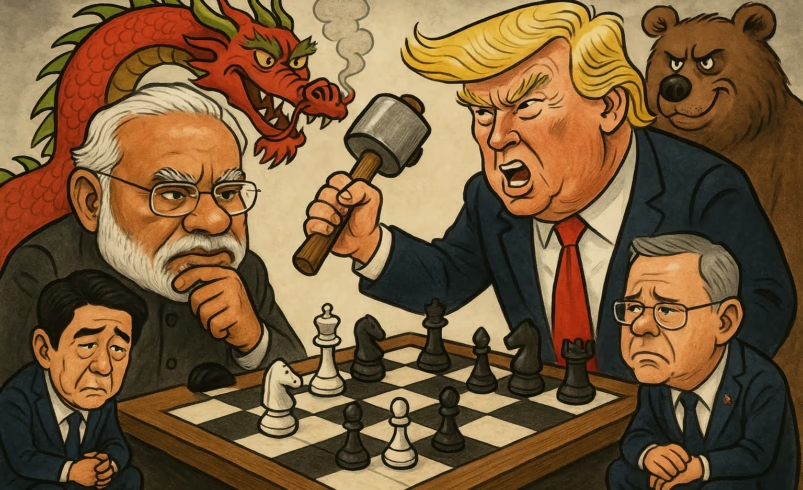Trump’s Tariffs on India: A Boost for China’s Global Influence
- August 7, 2025
- 0

President Trump’s decision to impose a 50% tariff on Indian exports has significant implications for international relations. This move, primarily aimed at pressuring Russia due to its ongoing oil imports, inadvertently affects India’s economic ties with the United States. The tariffs risk damaging the US-India relationship, potentially pushing New Delhi closer to Moscow and Beijing. As India faces increased economic pressure, its strategic alliances may shift, altering the balance of power in the region.
While the tariffs are intended to isolate Russia economically, they paradoxically benefit China. With India facing higher export costs, China finds itself in a favorable position to secure discounted Russian oil. This economic advantage allows China to strengthen its energy security and expand its influence in global markets. As a result, Beijing can enhance its geopolitical standing, capitalizing on the strained relations between the US and India.
The decision to impose tariffs on Indian exports not only strains US-India relations but also creates opportunities for China to expand its global influence. As New Delhi navigates these economic challenges, it may seek closer ties with Moscow and Beijing, potentially reshaping regional alliances. This shift could have far-reaching implications for global trade dynamics and geopolitical stability.
In summary, President Trump’s tariffs on Indian exports have unintended consequences that extend beyond their initial target of Russia. By potentially driving India closer to China and Russia, these tariffs could alter existing alliances and empower Beijing’s global ambitions. The situation underscores the complexity of international trade policies and their far-reaching effects on global geopolitics.